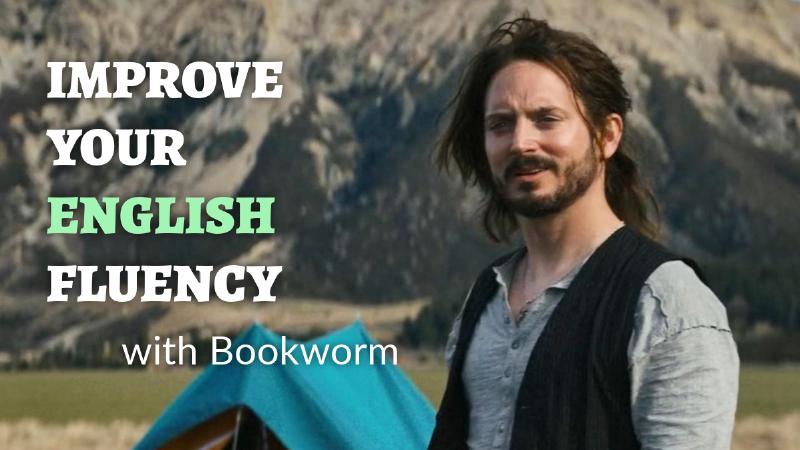Intro
Hi everyone! Welcome back to English Watch and Learn! Today, we’re exploring an amazing scene from the movie Bookworm. It’s filled with survival drama, humor, and some great vocabulary and phrases for you to pick up. Let’s see what’s going on in the scene.
11-year-old Mildred and her divorced father, magician Strawn find themselves stuck in the wilderness with barely anything to survive. They’re trying to figure out their next moves while being faced with fear, injuries, and limited supplies. Let’s watch and learn.
Video lesson
Words and phrases
“What’s the matter, Mr. Twizted Illusions?”
‘What’s the matter’ is a common way to ask someone if something is wrong or bothering them. It’s less formal than asking, ‘Is something wrong?’ Here, Mildred uses humor by adding ‘Mr. Twizted Illusions,’ which is a playful nickname based on Strawn’s line of work.
“big, dark, spooky stones”
The word ‘spooky’ means scary in a fun or mysterious way. You might describe a haunted house as spooky. Adding ‘big, dark, and spooky’ makes the stones sound even scarier. Notice how this sentence teases the other character—it’s playful and sarcastic.
“I got lost”
refers to a situation where someone is unable to find their way and is not sure of their location. This phrase is often used in English.
“Live or die. It really is that simple.”
This is a dramatic way to simplify a difficult decision. Saying ‘It really is that simple’ emphasizes that there’s no middle option—it’s either one or the other. Notice how the tone makes the sentence feel important and needing attention immediately.
“I would quite like”
is a polite and somewhat formal way of saying ‘I would like’ or ‘I want’. The word ‘quite’ adds emphasis, showing that the speaker wants something fairly strongly but not overly intensely.
For example, in the scene, Mildred says, ‘I would quite like to live,’ meaning she really wants to stay alive. This phrase is commonly used in British English and makes the sentence sound a bit softer or more thoughtful.
“Maslow’s Hierarchy of Needs”
Maslow’s Hierarchy of Needs is a psychological theory about what humans need to survive and well-being. At the bottom of the pyramid are fundamental needs such as food, water, and shelter. You might hear this phrase in academic contexts, especially in psychology or business.
If you’re curious why Mildred speaks so thoughtfully at just 11 years old, it’s because she loves reading books. Her knowledge comes entirely from the books she reads, rather than any real-life survival experiences.
“we’re off to a pretty good start”
In this phrase, the word ‘off’ means beginning or starting something. It’s often used to describe how something is progressing at the very beginning. For example, if a project or event starts well, you might say, ‘We’re off to a good start.’
“In short supply”
means that something is not available in large amounts or is difficult to get. It’s used when there isn’t enough of something. In the scene, Mildred says, ‘As calories are in short supply’, meaning they don’t have much food, so they need to be careful with what they eat.

